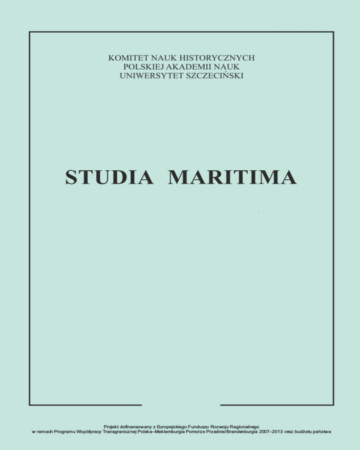






| Authors: |
Małgorzata
Cieśluk

Uniwersytet Szczeciński |
| Keywords: | piracy in antiquity ancient Greek novel historical semantics |
| Data publikacji całości: | 2020 |
| Page range: | 24 (9-32) |
| 1. | Abramowiczówna, Zofia. Słownik grecko-polski. Warszawa: Państwowe Wydawnictwo Naukowe, 1962. |
| 2. | Casson, Lionel. Ships and Seamanship in the Ancient World. Princeton–New Jersey: Princeton University Press, 1971. |
| 3. | de Souza, Philip. Piracy in the Graeco-Roman World. Cambridge: Cambridge University Press, 1999. |
| 4. | de Souza, Philip. Piraci w świecie grecko-rzymskim. Trans. Jacek Lang. Zakrzewo: Wydawnictwo Replika, 2008. |
| 5. | Dworacki, Sylwester. Wstęp do Opowieść etiopska o Theagenesie i Chariklei. Heliodor. Poznań: Wydawnictwo Naukowe UAM, 2000. |
| 6. | Goold, George P. (ed. and trans.). Chariton, Callirhoe. Cambridge: Harvard University Press, 1995. |
| 7. | Holzberg, Niklas. Powieść antyczna. Kraków: Wydawnictwo Homini, 2003. |
| 8. | Ksenofont z Efezu [Xenophon of Ephesus]. Opowieści efeskie czyli o miłości Habrokomesa i Antii. Trans. Ludwika Rychlewska. Wrocław: Zakład Narodowy im. Ossolińskich – Wydawnictwo, 1970. |
| 9. | LSJ The Online Liddle-Scott-Jones Greek-English Lexicon, accessed: 11.09.2020. http://stephanus.tlg.uci.edu. |
| 10. | Mc Kechnie, Paul. Outsiders in the Greek Cities in the Fourth Century B.C. London: Routledge, 1989. |
| 11. | Papanikolaou, Antonios D. (ed.) Xenophon Ephesius, Ephesiacorum libri V: de amoribus Anthiae et Abrocome. Leipzig: B. G. Teubner, 1973. |
| 12. | Rattenbury, Robert M., Lumb, Thomas W. (eds.) Héliodore, Les Éthiopiques (Théagène et Chariclée). Trans. Jean Maillon. Paris: Les belles lettres, 1960. |
| 13. | Reardon, Bryan P. Introduction to Chaereas and Callirhoe, Chariton. In: Collected Ancient Greek Novels, ed. Bryan P. Reardon, 17–21. Berkeley–Los Angeles–London: University of California Press, 2008. |
| 14. | Rychlewska, Ludwika. Wstęp do Opowieści efeskie czyli o miłości Habrokomesa i Antii, Ksenofont z Efezu, III–LXXIX. Wrocław: Zakład Narodowy Ossolińskich – Wydawnictwo, 1970. |
| 15. | Suda On Line: Byzantine Lexicography, accessed: 11.09.2020. https://www.cs.uky. edu/~raphael/sol/sol-html/. |
| 16. | Tatios, Achilleus [Tatius, Achilles]. Opowieść o Leukippe i Klejtofoncie. Trans. Robert K. Zawadzki. Częstochowa: Wydawnictwo Wyższej Szkoły Pedagogicznej |
| 17. | w Częstochowie, 2002. |
| 18. | Tatius, Achilles. Leucippe and Clitophon. Trans. John J. Winkler. In: Collected Ancient Greek Novels, ed. Bryan P. Reardon, 175–284. Berkeley-Los Angeles-London: University of California Press, 2008. |
| 19. | Tilg, Stefan. Chariton of Aphrodisias and the Invention of the Greek Love Novel. Oxford: Oxford University Press, 2011. |
| 20. | Vilborg, Ebbe (ed.). Achilles Tatius, Leucippe and Clitophon. Stockholm: Almquist & Wiksell, 1955. |
| 21. | Vilborg, Ebbe. Achilles Tatius, Leucippe and Clitophon. A Commentary. Göteborg: Elanders Boktryckeri Aktiebolag, 1962. |
| 22. | Whitmarsh, Tim. Narrative and Identity in the Ancient Greek Novel. Returning Romance. Cambridge: Cambridge University Press, 2011. |
| 23. | Zawadzki, Robert K. Wstęp do Opowieść o Leukippe i Klejtofoncie, Achilleus Tatios, 7–49. Częstochowa: Wydawnictwo Wyższej Szkoły Pedagogicznej w Częstochowie, 2002. |